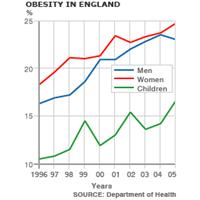

London: As the autumn days get shorter and darker, the prospect of living in sunnier pastures becomes all the more enticing. Whilst the majority of Brits go on holiday more than their parents did in their day, this is not enough for nearly two thirds of the population who dream of settling abroad.
Increasing numbers of Brits are opting for sunnier pastures with the majority tempted by a more relaxed and healthy lifestyle, according to a new survey by Italian food specialist Bertolli.
In the non-stop world of the 21st century, we are bombarded with new ways to stay healthy but sometimes they just seem to make life more complicated. It is unsurprising then that the most popular destination for those wishing to relocate was Italy. Why worry, when you could just sit back, relax and be inspired by the common sense of the traditional Mediterranean diet a huge 95% of those asked agree that its healthier than the British diet after all.
We may not all be culinary experts yet 62% of us try to incorporate ingredients from foreign holidays into our everyday diet. However, 81% also agree that they’re never quite able to replicate the food weve had on holiday! Italian dishes such as risotto and pasta were the most popular for those trying their hand at foreign cuisine.
As well as fruit, vegetables, grains, and fresh fish, olive oil is an essential component of Italian cuisine the olive tree is so full of goodness, its oil has been part of the traditional Mediterranean diet for thousands of years. Even though us Brits might not be able to enjoy every aspect of the Mediterranean lifestyle, you can enjoy a touch of olive oil in your diet with ease.
To win a beautiful olive tree for your own home, (UK residents only) simply email your answer the following question to readeroffer@elixirnews.com
Q What is Bertolli spread made from?
A. sunflower oil
B. olive oil
C. sesame seed oil
Rules: The prize: 1 beautiful olive tree (worth £50) – there is no cash equivalent available. The Editor’s decision is final. Competition closes 30 September 2007. The emails will be entered into a draw.
For more information visit www.bertolli.com
Healthy Mediterranean Recipes by Diane Seed
Scallops Adriatic style (Capesante alla Adriatica)
Along the Adriatic coast that are small, tasty scallops cooked very simply so that their good flavour is not masked by other ingredients.
18 scallops 3 T freshly chopped parsley
2 cloves garlic 3 T extra virgin olive oil
2 T bread crumbs salt & black pepper
1 lemon
Heat the oven to 180 C. Heat the oil and gently fry the finely chopped garlic. When it begins to turn colour remove from the heat and stir in the parsley. If the scallops are large cut in half, if not leave whole and allow 3 per serving. Arrange on a shell, season and spoon on a little garlic mixture, a squeeze of lemon and a sprinkling of breadcrumbs. Put them in the hot oven until they are golden brown. Remove and serve immediately.
Ricotta fritters (Frittelle di ricotta)
A very delicious, easy sweet dish from Basilicata
500 g ricotta cheese
4 eggs 1 T grated lemon and orange rind
4 T sugar 2 T brandy or fruit liqueur
4 T flour olive oil for deep frying
sugar for dusting
Leave the ricotta to drain for at least an hour. Then stir in the eggs, sugar, and other ingredients. Beat well to make sure you have a smooth, creamy mixture. Heat the oil and drop in a few tablespoons of mixture to form fritters, flattening them with a slotted spoon as they start to rise. Fry in batches, putting to drain on kitchen paper when they are golden brown. Dust with sugar and serve at once.
Linguine with tuna, lemon and rocket (Linguine al tonno,limone e rughetta)
Over the years this has gradually become one of my favourite pasta dishes, and we eat it all through the year. In Rome we can buy small bunches of wild rocket that has a pungent flavour, much stronger than cultivated rocket. Although the “ventresca” is usually considered the “best” cut of tuna, I find it easier to stir in the smaller flakes to get a more even distribution through the pasta. Therfore I use a cheaper cut, but for the flavour it is important to use tuna preserved in olive oil.
400 g linguine
200 g can tuna in olive oil
1 cup fresh rocket leaves, roughly chopped
juice of 2 lemons
2 garlic cloves, finely chopped
1 dry red chilli, crushed
3 T extra virgin olive oil
salt
Heat the oil and gently cook the garlic and chilli pepper. As the garlic begins to change colour add the drained, flaked tuna and stir around the pan. Keep warm. Cook the pasta in boiling salted water, drain when still slightly hard and stir into the tuna mixture. Squeeze over the lemon juice and stir in the rocket. Using a wooden spoon lift up the pasta and really keep turning it over so that the rocket wilts and the tuna is evenly distributed and not left at the bottom of the pan. Serve at once.









